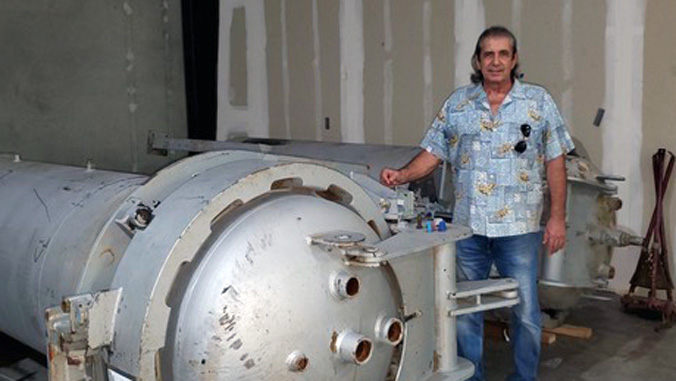
The University Economic Development Association (UEDA) has named a University of Hawaiʻi project as a national finalist in the innovation category. Tusi Avegalio, director of the UH Pacific Business Center Program (PBCP), was informed recently that the center’s Hauʻula Resilience Model Village submission had made the cut. National winners will be announced on October 1 at the UEDA national meeting in Reno, Nevada.
The Hauʻula Resilience Model Village will feature a waste conversion technology designed into a retrofitted freight container for mobility and easy deployment by land, air and sea. The thermal energy conversion of organic materials (TCOM) system utilizes a unique process to produce commercial carbon, soil amendments for agriculture and food production, fuel and atmospherically harvested water and should earn carbon credits. It is designed for island and remote rural communities and can be integrated in current economic development strategies, especially in the event of a disaster.
The Hauʻula coastal community and several other locations along the North Shore of Oʻahu, including the Polynesian Cultural Center, are being considered as demonstration pilot and training locations for the mobile TCOM System. The system, developed and patented by inventor Michael Lurvey, is designed for ease of use and maintenance by children as young as seven and adults 60 or older in villages and communities with limited access to technology. In addition to tons of green waste that can persist for months and years particularly from post disaster accumulation, TCOM processes and converts carbon-based waste (tires, plastics, sewage, biomass, etc.) into commercially viable by-products with no negative or harmful emissions.
“In today’s economic development environment, it is critically important for higher education institutions to be more engaged in their regional economies as partners with both government and business entities to lessen the impacts of economic disruptions and develop more resilience,” said Tim Hindes, UEDA executive director. “These finalists are the very top programs from across North America, generating impactful and sustainable results in the regions in which they are engaged.”
Pilot TCOM demonstrations are also planned for the 2019 Fourth Annual Global Breadfruit Summit hosted by the Polynesian Cultural Center, October 14–17. Initial TCOM demonstration sites are being planned for 2020 in Apia, Samoa and St. Croix, U.S. Virgin Islands.
The PBCP’s Pacific Regional Breadfruit Initiative won UEDA’s top award for research and analysis in 2014.

